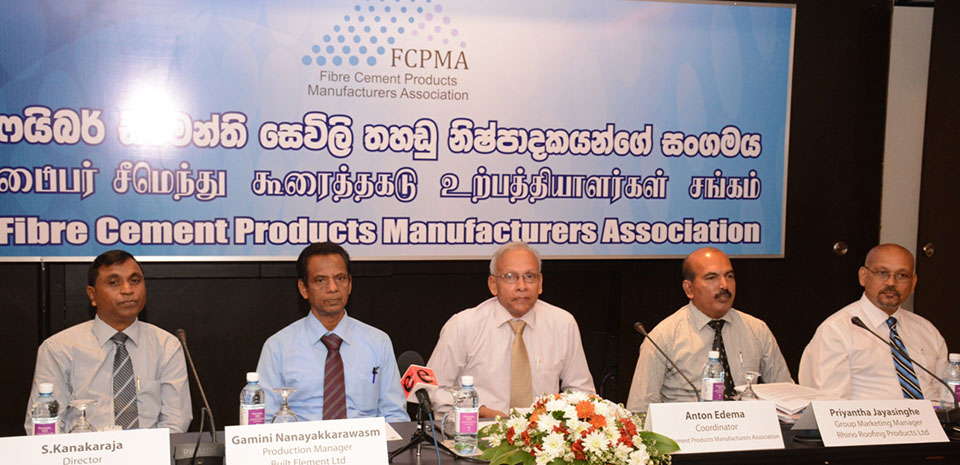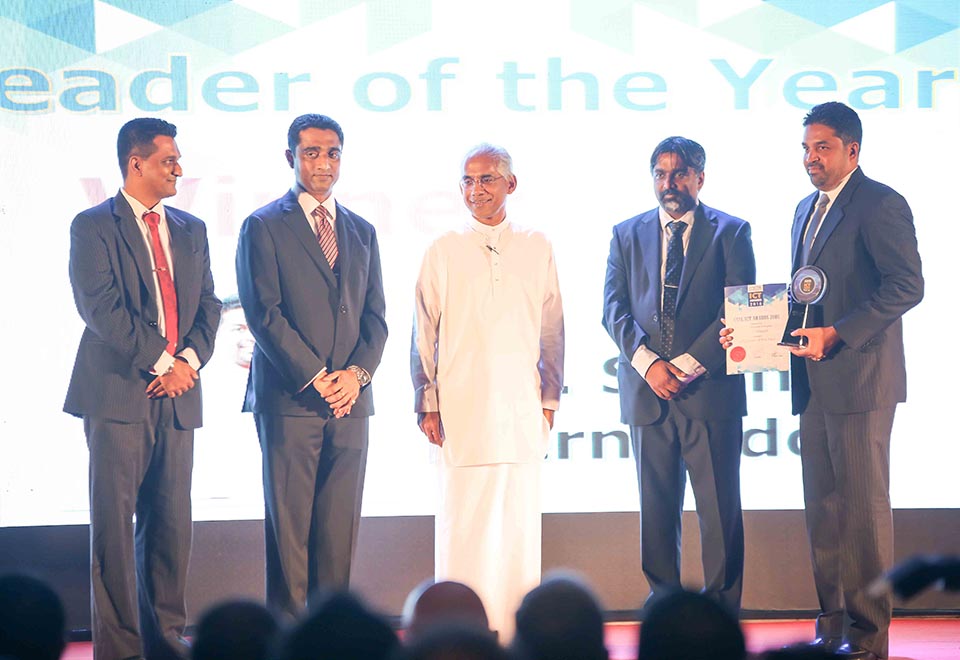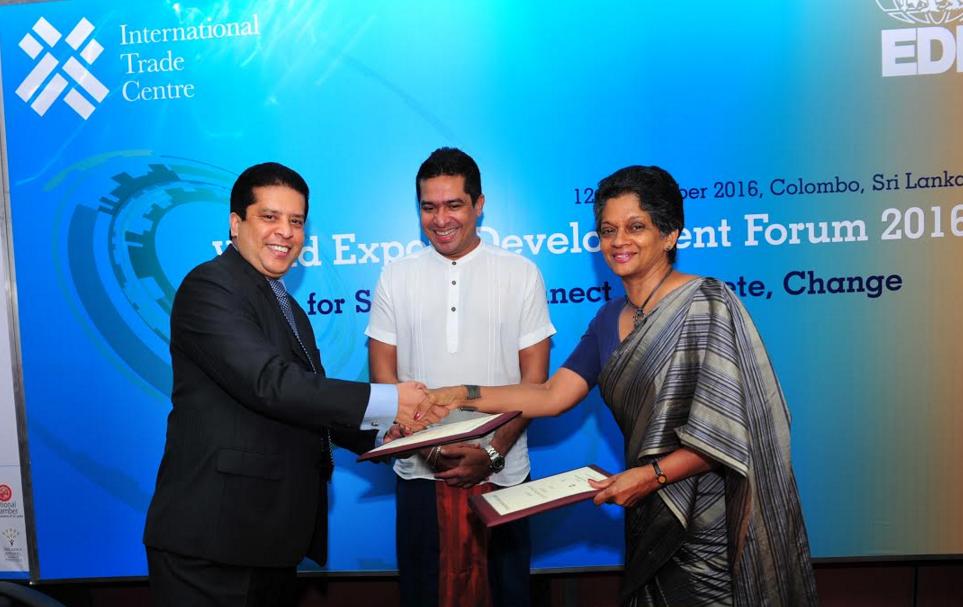
WITH REFERENCE TO THE CABINET DECISION DATED 6TH SEPTEMBER 2016
Wednesday, 14th September 2016, COLOMBO – SRI LANKA;The Fibre Cement Products Manufacturers’ Association which is the sole authority that represents the leading roofing sheets manufacturers in Sri Lanka takes this opportunity to bring to light our concerns relating to this decision by the Government of Sri Lanka under the direction of the Ministry of Mahaweli Development and Environment.
The FCPMA, which overlooks and governs the quality and safe production of Chrysotile Roofing Sheets in Sri Lanka acts as the Research and Development hub for Rhino Roofing Products Limited, Sri Ramco Lanka (Pvt) Limited, Built Elements (Pvt) Limited (Elephant Masconite) and SigiriRoofings (Pvt) Limited who are the leading manufacturers of Chrysotile Roofing Sheets in the island.
Chrysotile fibre is a natural mineral found on earth formed by a combination of Magnesium, Silica and Water, mined only in countries such as Russia, Brazil and Kazakhstan. Chrysotile Roofing Sheets in Sri Lanka are produced with a combination of 92% of cement and water along with a maximum of 8% of Chrysotile Fibre for strength. The production process of the Chrysotile Roofing Sheets complies with Sri Lankan quality standards such as ‘SLS 9’, ISO 14000, ISO 9001 and OHSAS 18001. The production process of the Chrysotile Roofing Sheets complies with Sri Lankan quality standards such as ‘SLS 9’, ISO 14001, ISO 9001 and OHSAS 18001. The fibre roofing sheet manufacturing industry has made a significant contribution in sheltering the nation for over 60 years with a durable and economical roofing solution in line with the government’s agenda to provide a roof to every family. Today, this industry that has been brought under the spotlight by the current decision to phase out the usage and import of Chrysotile, would like to emphasize on the importance of differentiating and understanding the key elements of asbestos fibres relating to Sri Lanka.
Sri Lanka which does not mine any asbestos fibres including fibres including white asbestos (scientifically known as Chrysotile) eliminates the risk of developing all types of carcinogenic diseases within the nationrelated to mining activities. Chrysotile fibre which is the only type of asbestos imported to the country in sealed packaging is not exposed to any living being during the transportation or production process of the roofing sheets. Further, the roofing sheets do not pose a risk or health hazard to any consumer due to its stringent conformity to local and global quality standards. With the development of technology, the industry has taken measures to ensure the direct work force of over 4,000 employees comply with all safety standards required in any high density industry.
Chrysotile-cement roofing sheets are distributed across 80% of the island and many Sri Lankans depend on the industry for their livelihood as it is currently the only roofing sheet produced in the world which is accredited for its product durability and economic value. As proven by many research institutes globally, all alternative products available in the market are expected to be higher in price and likely to decay within a usage of less than 30 years.
The Chrysotile fibre industry which spans 152 countries globally (amounting to over 78% of the world), contributes to the Sri Lankan economy by offering over 4,400 direct employment with another 17,500 dependents. Other indirect employment opportunities generated by this industry in Sri Lanka amount to approximately 37,800 including suppliers, carpenters, assistants, intermediaries, transport personnel and drivers to name a few.
Chrysotile Cement Roofing products are high density non-friable and are not expected to release any airborne asbestos fibers thereby largely reducing the risk of polluting the environment. However, FCPMA would like to further highlight that Chrysotile fibreswhich belong to the Serpentine family of asbestos, if inhaled dissolve into tiny pieces inside the lung and are expelled via the respiratory tract. As a result, Chrysotile is considered not harmful to humans or any living being depending on Bio-persistence which is the level and period of exposure to any hazardous material.
While Sri Lanka have not reported any mesothelioma or asbestos related cancer deaths over the past 60 years, the FCPMA along with the partner companies extend a fervent plea to President MaithripalaSirisena, the Government of Sri Lanka and its Ministries such as the Ministry of Mahaweli Development and Environmental, Ministry of Health and Nutrition, Ministry of Housing and Development, Central Environmental Authority, Ministry of Science and Technology, Media Organizations and the General Public to review the facts relating to Sri Lanka.
The Fibre Cement Product Manufacturers’ Association while fully understanding the importance of the government’s objective ofeliminating cancer related diseases in order todrive Sri Lanka towards a moredeveloped, sustainable and healthy workforce, is committed to ensuring the safe usage of all products produced by its members. Further, the FCPMA would like to bring to the notice of the general public, the importance of verifying any misconceptions or speculations generated through various forms of communication distributed within the country in relation to Chrysotile Fibre Roofing Products.
Chrysotile Fibre which is the least hazardous fibre of the Asbestos Family is commonly known only due to its commercial association for roofing. It has been negatively impacted due to asbestos being categorized by the World Health Organization as a carcinogenic product. However, everyday products such as red meat, processed meat, salted fish, beetle quid, and other socially accepted manufacturing processes are also categorized by the World Health Organization as carcinogenic. It could very well be the WHO’s right to meet its objective to eradicate any cancer related diseases across the world by conducting appropriate programs. However, FCPMA would like to emphasize that the said objective of the WHO does not directly apply to Sri Lanka as it did in European and other developed countries. These countries suffered from extensive exposure due to the mismanagement of asbestos fibre production facilities in the manufacture of low density friable products resulting in region-wide bans.
The attached documentation collated by the International Chrysotile Institute( http://www.chrysotileassociation.com/ ) furnishes a detailed outline of the global outlook on the Chrysotile Industry. FCPMA has extended an official letter requesting the Government of Sri Lanka to investigate further into the current production practices and usage of the roofing sheets and research the incidence and mortality related to Chrysotile fibre, prior to a final decision on this matter.
Should the public require any clarifications relating to the above the FCPMA could be contacted on +94 771379244.
The association requests the public to adhere to the safe usage practices with respect to all Chrysotile Roofing Sheets just as with any other product in the market.


